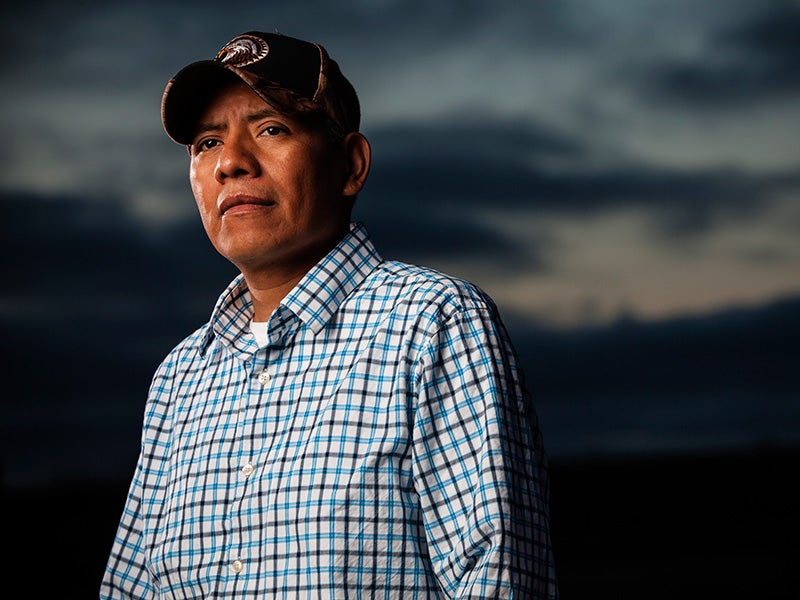Daily Headaches and Vertigo: Life in the Fields of California
Working with farmworkers for stronger pesticide protections

This page was published 11 years ago. Find the latest on Earthjustice’s work.
This is the sixth blog in a weekly series of personal stories from farm and agricultural workers, illustrating the need for stronger worker and safety protections against pesticide exposure. To get beyond the statistics of 10,000–20,000 pesticide poisonings on farms a year in this country, we go to the frontlines, beginning in California.
The poisons that are intended to kill the bugs in the fields can stay there for days. I’ve seen farmworkers who have fungus on their fingers that eats away their fingernails. Workers are often not given proper training or protective gear, like gloves. Repeated exposure, week after week, can cause real damage not only to their hands, but to their eyes. We see an alarming amount of farmworkers with cataracts. Many workers live with daily headaches and vertigo. After working in the fields for five years, that’s when I’ve seen people develop the hard core health issues like cataracts and arthritis.
The underlying issue is that these are people who aren’t covered by health insurance and can’t afford the medical costs. Some are undocumented and don’t qualify for Medicare or Medical insurance.
I work for a local community college where my students are predominately farmworkers. I hear so many horror stories about the mistreatment of this labor force. Many of my students don’t know how to speak, read or write English. All they’ve ever known is work, and they will endure hard, physical, painful labor just to earn some decent money.
I say to my students, if you are willing to study after a hard day out in the fields, 12-14 hours in the hot sun, I’m going to be here for you and give each person individual attention and meet them where they are at. If they need to learn how to count money in order not to get ripped off, that’s what I teach. I’m more of a case manager than teacher. I try to give this vulnerable population the resources needed on pesticide exposure, domestic abuse, labor abuse and translation services.
Earthjustice will be sharing farmworker stories until the Environmental Protection Agency finalizes an updated Worker Protection Standard (WPS). To tell Administrator Gina McCarthy that agricultural workers deserve the same workplace safety standards as every other industry, take action today.
Pedro’s story is one of a series that highlight the changes that need to be made to the WPS.
Established in 1989, Earthjustice's Policy & Legislation team works with champions in Congress to craft legislation that supports and extends our legal gains.